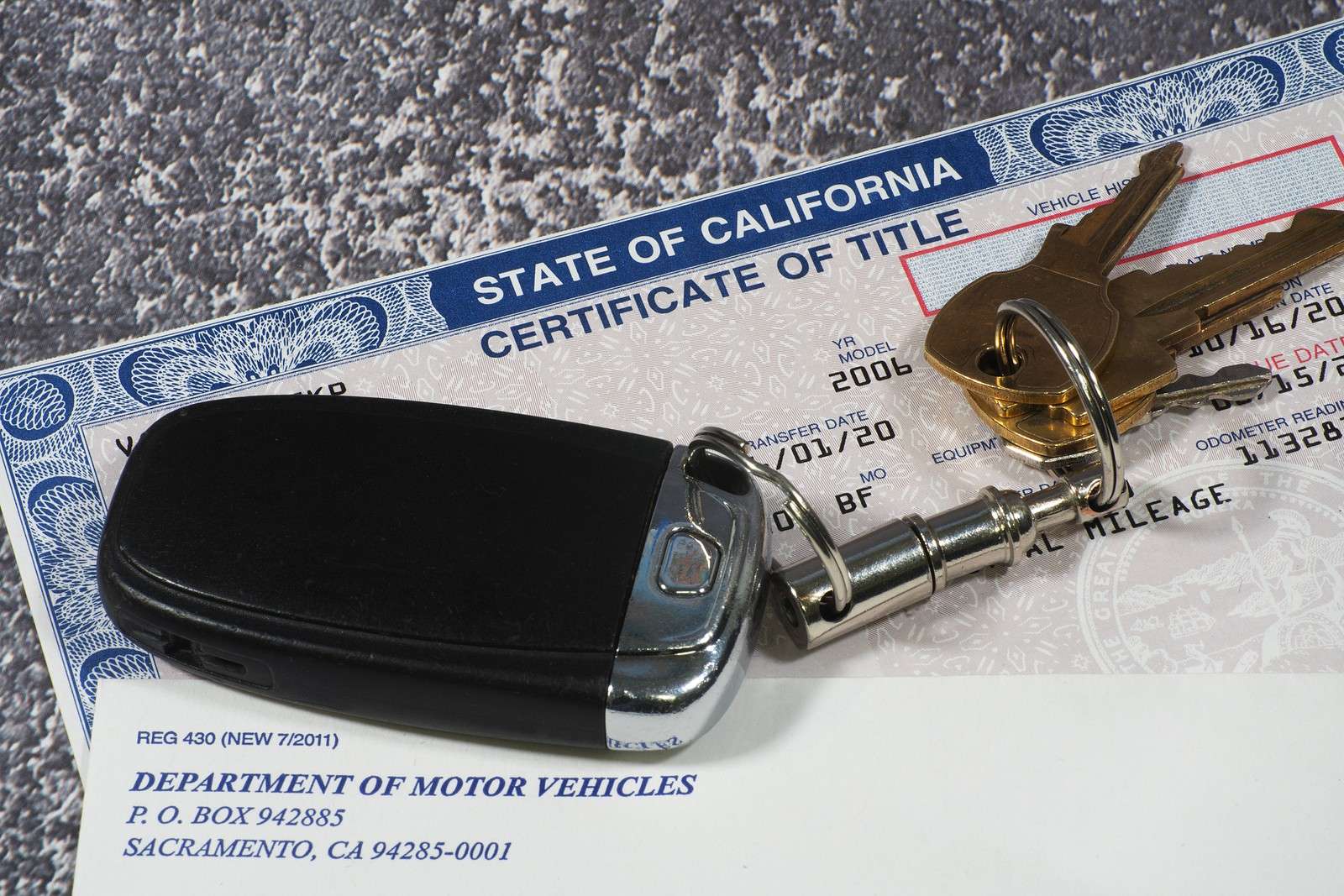If you aim to make money from the transaction, selling the car is preferable. However, if financial gain isn't a concern and you wish to help a family member, gifting is a suitable option. Remember, gifting a car exempts the recipient from sales tax, but may involve gift taxes depending on the car's value.
If you aim to make money from the transaction, selling the car is preferable. However, if financial gain isn't a concern and you wish to help a family member, gifting is a suitable option. Remember, gifting a car exempts the recipient from sales tax, but may involve gift taxes depending on the car's value.
Introduction
When contemplating whether to sell or gift a car to a family member, it's crucial to consider the implications of each option. This decision affects not just immediate financial outcomes but also tax liabilities and personal relationships. This comprehensive guide aims to provide you with all the necessary information, ensuring that you don't need to consult any additional resources.
1. Financial Implications of Selling vs. Gifting
- Selling the Car: Selling a vehicle to a family member, potentially at a reduced price, can offer financial compensation for the car’s value. It's a practical choice if the car has significant worth or if you're looking to recoup some of its value.
- Understanding Market Value: Research the current market value to set a fair price, ensuring the deal is beneficial for both parties.
- Formalizing the Sale: Draft a bill of sale and ensure all legal requirements are met to legitimize the transaction.
- Impact on Relationships: Consider how the sale might affect your relationship with the family member, especially if negotiations become complex.
- Gifting the Car: Opting to gift a car is a generous act that can significantly benefit a family member without the financial strain.
- Eliminating Sales Tax: Gifting a vehicle typically exempts the recipient from sales tax, which can be a considerable saving.
- Navigating Gift Tax Laws: Be aware of the gift tax implications. As of 2023, the gift tax limit is $17,000 per individual, meaning gifts above this value might incur taxes.
- Emotional Value: Gifting a car can strengthen family bonds and provide significant support to a loved one.
2. Tax Considerations
- For the Giver: When gifting a car, the giver must consider potential gift tax liabilities. If the car's value exceeds the annual exemption limit, it might necessitate filing a gift tax return.
- Understanding Gift Tax Exemptions: Familiarize yourself with the annual gift tax exclusion and how it applies to
your situation. – Filing a Gift Tax Return: If required, prepare to file IRS Form 709 to report the gift. – Long-Term Financial Planning: Consider how this gift fits into your long-term financial plans, especially regarding estate planning.
- For the Recipient: Receiving a gifted car usually does not entail income tax, but it's essential to understand any potential obligations.
- Sales Tax Exemption: Typically, receiving a gifted car exempts the recipient from sales tax.
- Registration and Title Transfer Fees: Prepare for any costs associated with transferring the title and registering the vehicle.
- Insurance Considerations: Ensure the recipient can afford insurance, as this is a crucial ongoing cost.

3. State-Specific Regulations
- DMV Requirements: Each state has its own set of rules for transferring vehicle ownership, whether through sale or gift.
- Researching State Laws: Check your state’s Department of Motor Vehicles (DMV) website for specific requirements and forms.
- Title Transfer Process: Understand the process for title transfer in your state, including any need for a bill of sale or gift affidavit.
- Inspection and Emissions Requirements: Some states require a vehicle inspection or emissions test before transferring ownership.
- Gifting to Minors: Special considerations apply if the recipient is under 18.
- Legal Guardianship Considerations: Ensure that all legal requirements are met for minors to own a vehicle.
- Insurance for Young Drivers: Be aware that insurance rates for young drivers can be significantly higher.
- Driver’s Education and Safety: Encourage or require the recipient to complete a driver's education course for their safety and responsibility.

4. Personal Considerations and Relationships
- Emotional Impact: Gifting a car can be a deeply meaningful gesture, symbolizing trust and generosity.
- Understanding the Recipient’s Needs: Ensure the gift aligns with the recipient's actual needs and preferences.
- The Element of Surprise vs. Practical Discussion: Decide whether a surprise gift is appropriate or if a discussion beforehand is more prudent.
- Setting Expectations: Clarify any expectations or conditions associated with the gift, such as maintenance responsibilities.
- Selling to Family Members: Selling a car to a family member requires clear communication to avoid misunderstandings.
- Transparent Negotiation: Maintain open and honest communication about pricing and the vehicle's condition.
- Contractual Agreement: Consider drafting a simple contract to outline the terms of the sale, ensuring both parties are clear about the agreement.
- Maintaining Relationships: Approach negotiations with sensitivity, as financial transactions can sometimes strain relationships.

5. Practical Steps for Transferring Ownership
- Preparing Documentation: Gather all necessary documents, such as the title, recent maintenance records, and any warranties.
- Vehicle History Report: It's advisable to provide a vehicle history report to the recipient, ensuring transparency about the car's condition.
- Title Transfer and Registration: Complete the title transfer at your local DMV and update the registration to reflect the new owner.
- Handling Financial Transactions: If selling, decide on a payment method that is secure and agreeable to both parties.
- Payment Methods: Options include cash, bank transfer, or a cashier's check.
- Receipt of Sale: Provide a receipt or bill of sale for record-keeping and legal purposes.
- Outstanding Loans or Liens: Ensure any existing loans or liens on the vehicle are cleared before transferring ownership.

6. Legal and Insurance Considerations
- Legal Requirements for Transfer: Ensure all legal requirements are met for a smooth transfer of ownership.
- Legal Ownership and Liens: Verify that you have the legal right to sell or gift the car, and there are no outstanding liens.
- Compliance with State Laws: Each state has different requirements for selling or gifting a car, including emissions tests and safety inspections.
- Notarization: Some states require the title transfer documents to be notarized.
- Insurance Changes: Address insurance changes promptly to avoid any lapse in coverage.
- Notifying Insurance Companies: Inform your insurance company of the change in ownership.
- Insurance for the New Owner: Ensure the new owner secures their own insurance policy to cover the vehicle.
- Potential Insurance Savings: Discuss with an insurance agent about possible savings or discounts, especially for family members.

7. After the Transfer: Ensuring Ongoing Success
- Post-Transfer Responsibilities: Outline the responsibilities of the new owner after the transfer.
- Maintenance and Upkeep: Remind the new owner of the importance of regular maintenance to keep the car in good condition.
- Renewals and Inspections: Ensure the new owner is aware of the need to renew the registration and complete any required inspections.
- Future Resale Value: Discuss the factors that can affect the car's resale value, encouraging responsible vehicle ownership.
- Continued Family Support: If possible, offer continued support and guidance to the family member, especially if they are a new driver.
- Offering Guidance: Be available to answer questions or provide advice on vehicle maintenance and care.
- Driving Tips and Safety: Share useful driving tips and emphasize the importance of safe driving habits.
- Supporting Their Independence: Recognize that owning a car can be a significant step towards independence, and encourage responsible use.

Conclusion
Whether to sell or gift a car to a family member is a decision that requires careful consideration of financial, legal, and personal factors. By understanding the implications of each option, you can make an informed choice that benefits both you and your family member. Remember, the most important outcome is the continued well-being and happiness of your loved ones.

Call to Action
For anyone looking to sell their cars regardless of condition and type, contact Cash Cars Buyer at 773-791-4363. We offer fair prices and a hassle-free process, ensuring you get the best value for your vehicle. Or you can fill out our online form to get your instant offer by clicking here!



